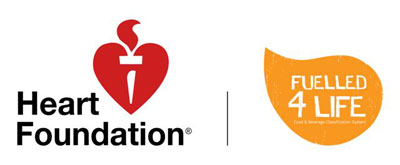
Healthy snacks are important for growing children and busy teens, helping them perform better in the classroom, on the sports field and while participating in extra-curricular activities.
Making the right food choices between meals will help provide essential nutrients for growth, boost energy levels and enhance concentration. It will also help them feel satisfied until lunch or dinner rolls around.
What makes a healthy snack?
Everyday snacks are whole or less-processed foods. This means foods that are as close to how they are found in nature as possible, for example, vegetables and fruit, whole grains, legumes, nuts, seeds and other sources of healthy fats, such as oily fish. You may also choose to include non-processed lean meats, poultry and/or dairy.
Everyday snacks should be low in saturated fat, sugar and salt. Remember to ensure the portion size is appropriate for the age of the child, so larger servings may need to be cut into smaller portions for younger children.
Nutritious snacks can be affordable, convenient and easy to prepare, they can also be a great way to boost fruit and vegetable intake. Encourage children to get involved in planning and preparing their own healthy snacks, especially when spending more time at home over the school holidays.
Simple snacks using vegetables and fruit:
- Seasonal fruit kebabs with natural yoghurt
- Corn fritters or vegetable scones
- Mousetrap or pita pizza made with wholemeal bread, Edam cheese and sliced tomato, capsicum or other vegetable toppings
- Snack platter with fruit and vegetable pieces, hummus and plain popcorn
- A fruit and bran muffin (e.g. banana and date)
- Celery sticks filled with cottage cheese or smooth peanut butter
- Egg and lettuce sandwich with wholemeal bread
- Smoothie with fruit and/or vegetables (e.g. green smoothie)
- Trail mix with nuts, seeds and dried fruit
- Wholegrain corn thins spread with cottage cheese and topped with fresh vegetables and fruit (get creative with the decorations and make faces, animals or flowers).
Watch out! Some snacks have a lot of fat, sugar and/or salt and only give short bursts of energy. Limit these types of foods to occasional treats. When buying packaged food, read the food label and choose products with less saturated fat, sugar and salt. The Fuelled4life online Healthy Food Cruncher can help you make healthier food choices.
Have you seen our new resource?
The new Fuelled4life ‘Mix & Match’ poster offers a step-by-step guide to build healthy meals and snacks. These simple ideas can be created by using everyday kitchen appliances (eg. toaster, fridge or microwave).
This is a great resource to share with parents for inspiration during the school holidays or for older children involved in food preparation.
How can Fuelled4life help?
Fuelled4life is based on the Ministry of Health’s Food and Beverage Classification System (FBCS). It’s a free practical tool that helps schools provide healthier options. Fuelled4life aims to increase access for young people to healthier food and beverages and inspire food services to provide tasty, nutritious products.
Sign-up to Fuelled4life
One in three Kiwi kids are overweight or obese, but you can help change that.
If you are a teacher, principal, canteen manager, caterer or cook and would like to see your school offering healthier food and beverages, we can help you. Simply
- sign up to Fuelled4life for many free resources that’ll help you choose healthier options
- you’ll also get free access to the Fuelled4life website and newsletter that include tips, recipes, special deals and information on ways to improve nutrition in your school.
For more information or one-to-one nutrition support, please contact the Fuelled4life team on 09 526 8550, email fuelled4life@heartfoundation.org.nz or go to fuelled4life.org.nz


